With eyes on the planet, an L.A. woodworker turns fallen trees into stunning vessels
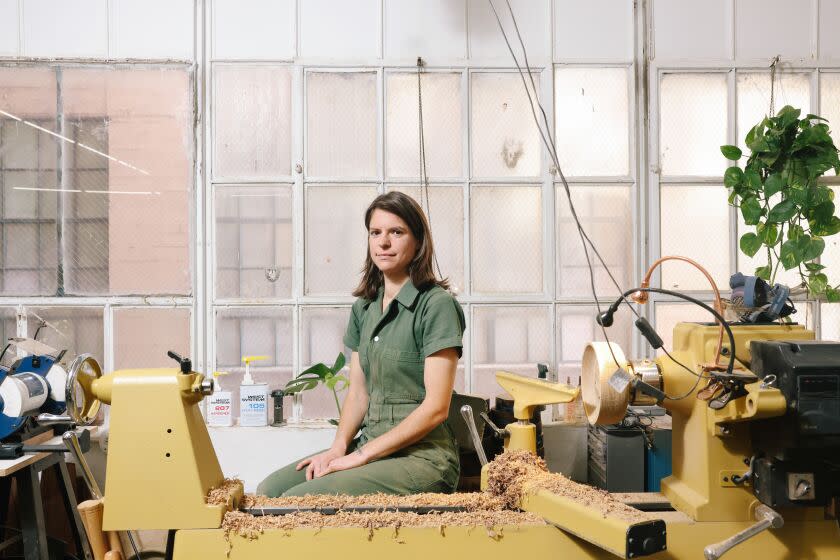
Standing on a blanket of sawdust in the Los Angeles Fashion District woodshop she shares with two other woodworkers, Julie Jackson puts on a protective face shield and turns on her lathe.
Armed with a turning chisel called a bowl gouge and dressed in a green Big Bud Press jumpsuit, Jackson proceeds to mold a rough-hewn piece of black walnut similar to a potter forming a vessel on a potter’s wheel. After a few moments of turning, the subtle grains of wood begin to emerge, and the block of wood begins to resemble a dry vase.
"I enjoy all of the things that I do with wood, including making furniture, but turning is definitely my favorite," says Jackson. "I like things to look and feel soft. I also like the idea of making ordinary things beautiful. I keep subtracting until it’s the right shape.”
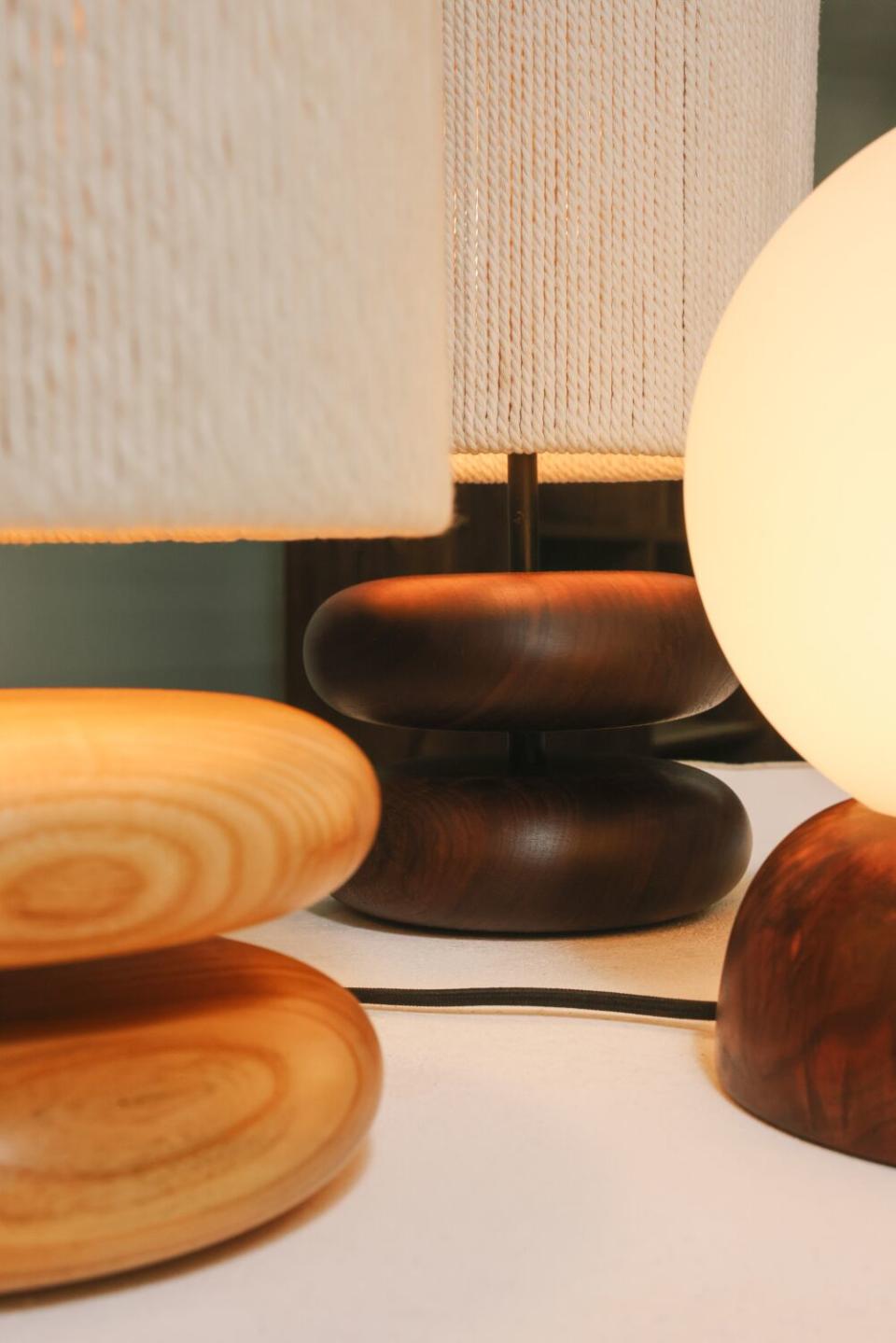
For Jackson, the journey to becoming a designer of finely turned wood lamps and delicate vases and bowls began with the childhood projects she created with her grandfather in Michigan.
“Ever since I was little, I wanted to be an artist,” says Jackson, 36. “I’d make birdhouses with my grandfather, who was a carpenter, and then I’d paint them with my grandmother. He was so encouraging. It was the best.”
Working with her hands as a child inspired Jackson to major in art at Indiana University-Purdue University Indianapolis, but she transferred to environmental science after a year because she was worried about supporting herself as an artist.
“I just didn’t know what form being an artist would take,” she says. “I thought I’d be a painter. Looking back, I wish I’d stayed in the art department. I think I would have had a lot more fun.”
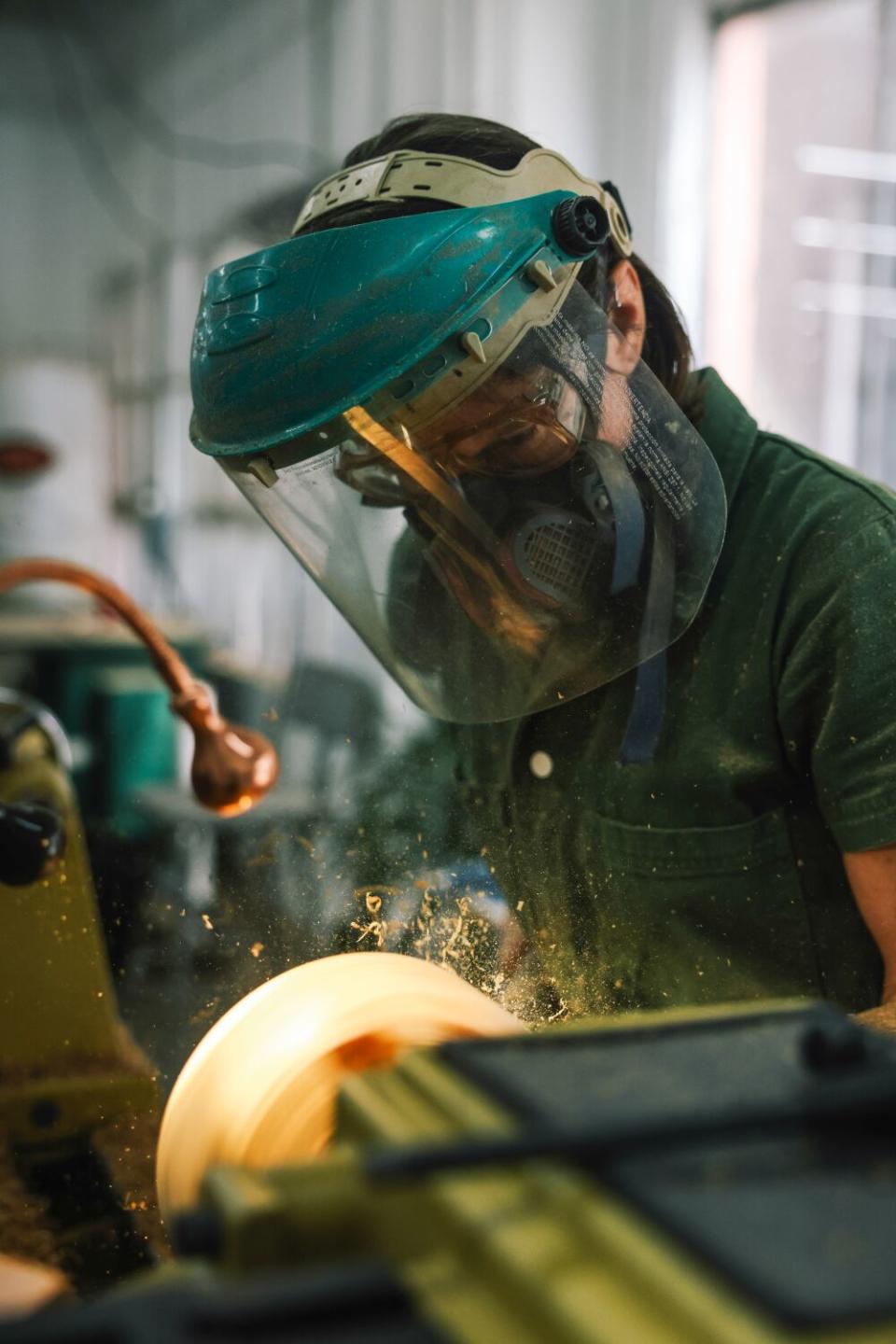
After graduating from college, she worked at a nonprofit recycling company that would ultimately influence her direction as an artist. “It was more of a passion than a career,” she says of working for the recycling company. “But I would later implement what I learned from them into my artworks.”
Sitting at a computer and doing data entry eight hours a day made her miss working with her hands, so in 2014 she moved to Pasadena for a year and apprenticed with her brother, woodworker Josh Jackson. "I love sculpture and making three-dimensional functional art," Jackson says. "I finally found the art that I wanted to make: wood."
In addition to her apprenticeship, she learned a lot about woodturning by watching videos on YouTube and attending her local chapter of the American Assn. of Woodturners. “The clubs are all over the country and are usually free to join,” Jackson says. “I highly recommend it for anyone wanting to learn how to turn wood. “
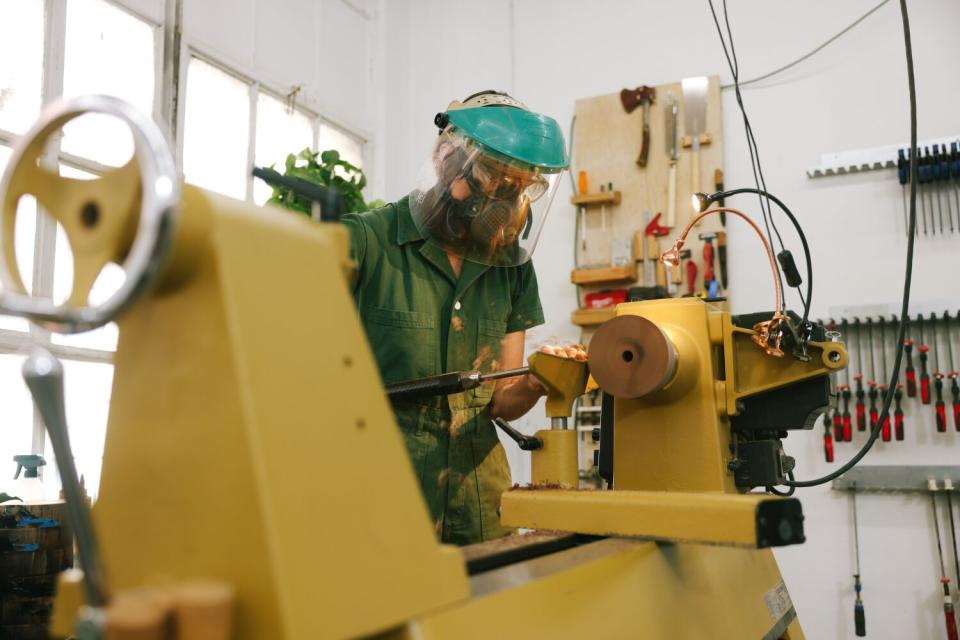
Following her apprenticeship, she returned to Bloomington, Ind., where she and her husband, Jonathan Meador, established Surcle Wood, a sustainable brand devoted to creating custom wood furniture and accessories from recycled wood.
Jackson and Meador were working on custom projects for several restaurants in Indiana when the COVID-19 pandemic hit. “It was scary,” she says of the projects that were put on hold. But the COVID-19 shutdown also gave her time to focus on woodturning and creating smaller home decor items.
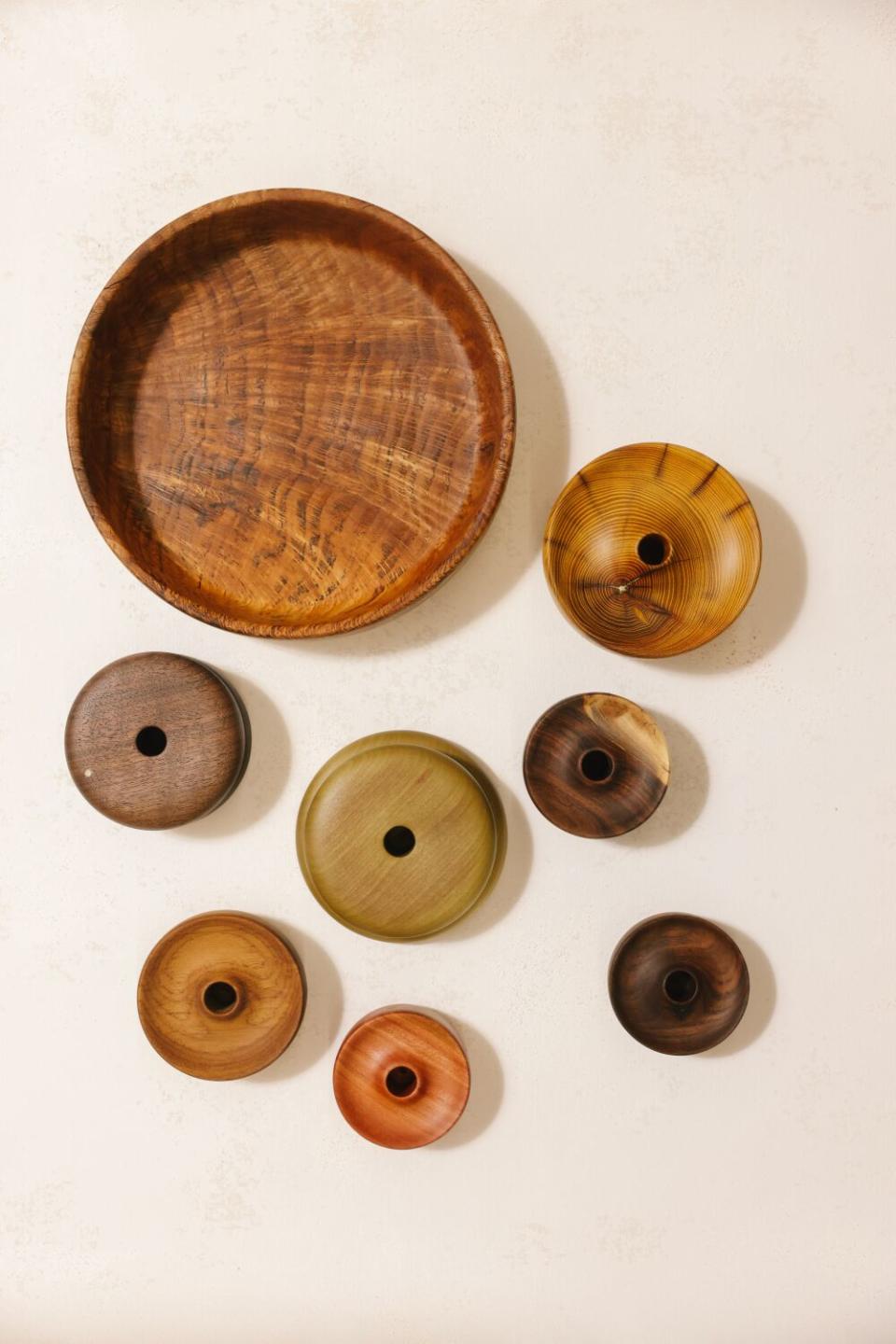
When she offered her made-to-order River Rock lamps (priced at $265 apiece without lampshades) and Surcle Wood vases (priced between $38 to $110) on the online marketplace Etsy, they took off.
“Etsy has been huge for me,” Jackson says. “I was living in a small town in Indiana. All of a sudden I was shipping lamps to Hong Kong and England. It opened up a bigger audience for my work."
When the shutdown ended and businesses began to reopen, her custom work returned, along with renewed interest in her smaller pieces. "It felt like there was an even greater appreciation for handmade things at that time," Jackson says. "People wanted to support small businesses.” When her River Rock lamp, an elegant piece composed of two stacked wooden ovals turned on a lathe, was chosen as a finalist at last year's Etsy Design Awards, her profile got another boost.
Etsy’s trend expert Dayna Isom Johnson, who was one of the jurors for the awards, is not surprised, given the increased demand for handmade wood gifts and home decor on the site. “As our world becomes increasingly automated, many shoppers are embracing handcrafted styles — celebrating both craftsmanship and individuality — and turning to items like Julie’s as an alternative to mass-produced pieces,” Isom Johnson says.
They are also interested in supporting small businesses who offer eco-friendly goods. “Julie’s shop takes the environment into consideration by repurposing existing wood — instead of adding to deforestation — which resonates with sustainably-minded shoppers,” Isom Johnson adds.
Jackson's brother, Josh, who co-founded Arbor Exchange in 2010, says Jackson's commitment to sustainability is evident in every aspect of her business. "While she thoughtfully sources lampshade frames from a local artisan and uses 100% compostable components for shipping, it’s the wood she utilizes in her designs that highlight her unwavering dedication to the environment," he says. "Her use of reclaimed wood and slabs from locally downed trees is a testament to this dedication but also to the originality of each and every piece that passes through her hands."
After moving to Silver Lake in January, Jackson now sources wood from urban wood recycling programs at Angel City Lumber in Los Angeles and Street Tree Revival in Anaheim. She also uses offcuts from her shop mate's custom furnishings as well as Osage orange from her grandparents' farm and black walnut from downed trees in Bloomington.
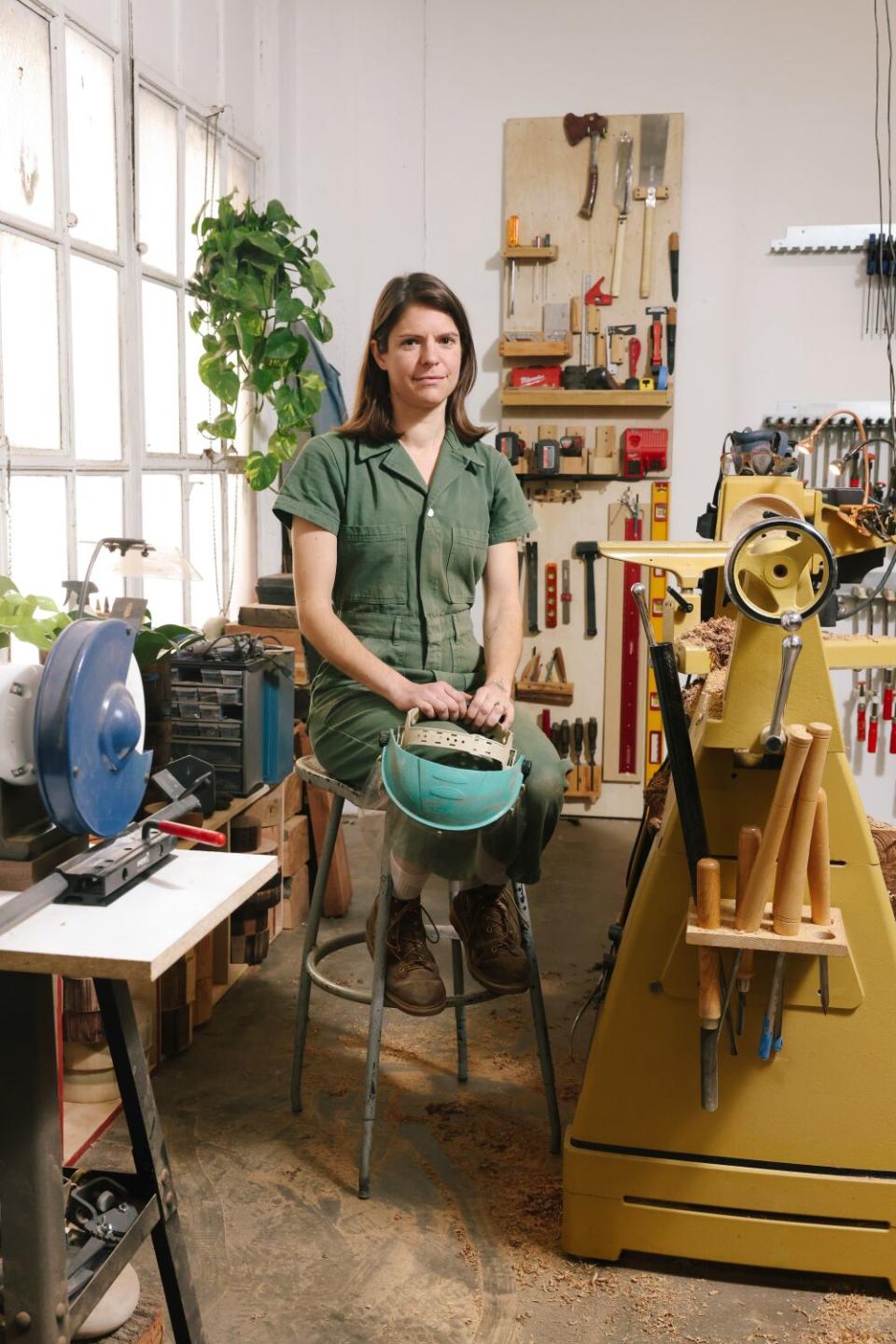
Although her lamps are minimal by design — she recently added a Moon Wake lamp, a glass globe cradled in walnut ripples ($190) — they are also incredibly complex because of the precision involved in the turning process.
Asked if she has any advice for others starting a small business, Jackson admits it can be overwhelming. "It took me a long time to get to where I am," she says. "In the beginning, I was working other jobs. Tools and wood are expensive, so the first few years I felt like I was working to pay for my tools. It was a long road to do it on my own without any funding. I would tell people to ask for help. Ask people who are working in the field that you want to work in. Pick their brain. That's how you learn."
Jackson, who also does custom furniture commissions, says that woodturning frees her to experiment with unexpected wood varieties, from red gum eucalyptus to antique poplar.
"With furniture, everyone wants the same wood — oak and walnut," Jackson says. "But there are so many different woods out there. Throughout the life of a tree, many factors — the amount of rain, sunlight, and storms, the insects and animals that made the tree their home, its location being urban or rural — take part in creating a unique piece of wood. These patterns, cracks and lines in the grain created over a lifetime being revealed by my chisel is thrilling and inspiring. It’s like unwrapping a present."
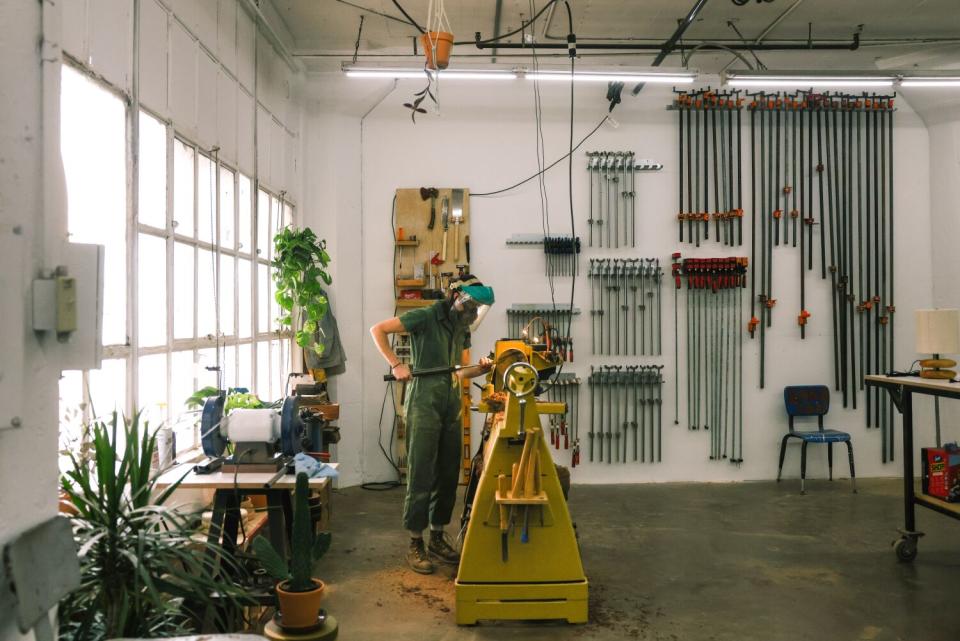
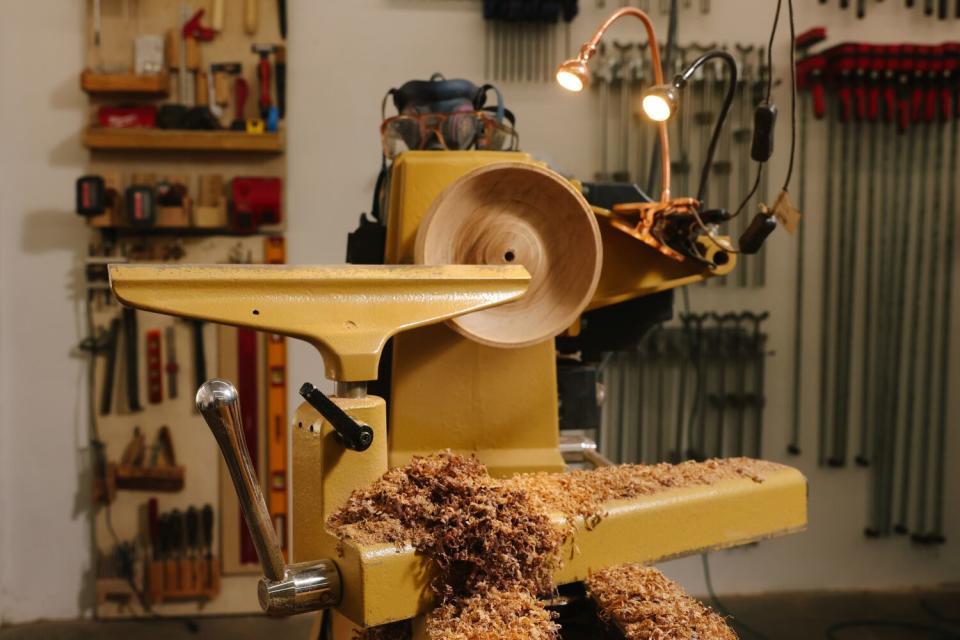
This story originally appeared in Los Angeles Times.

